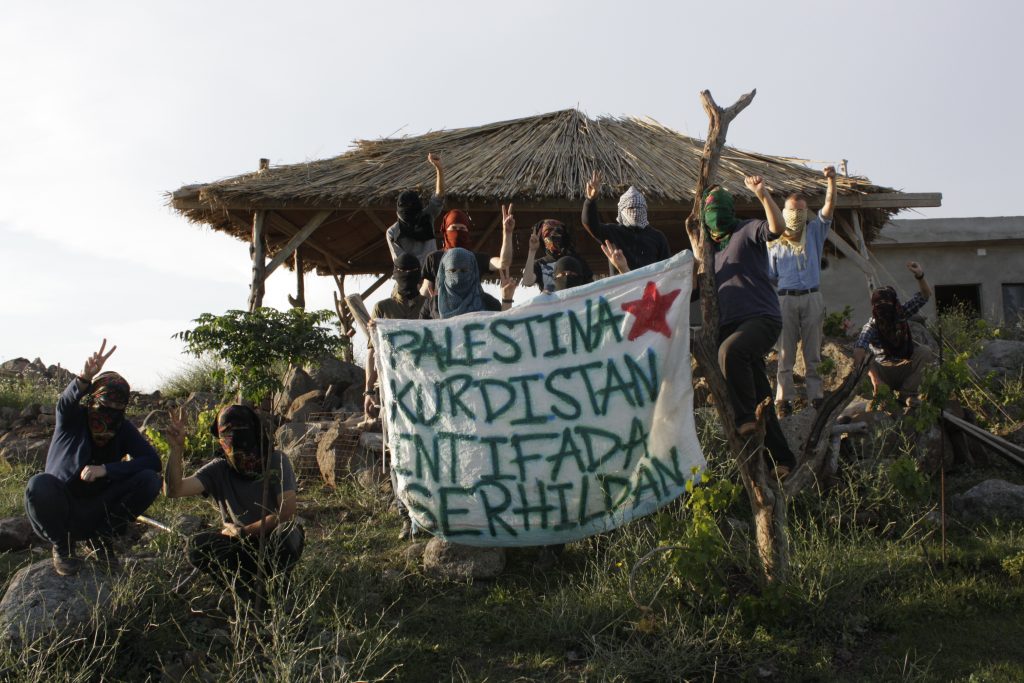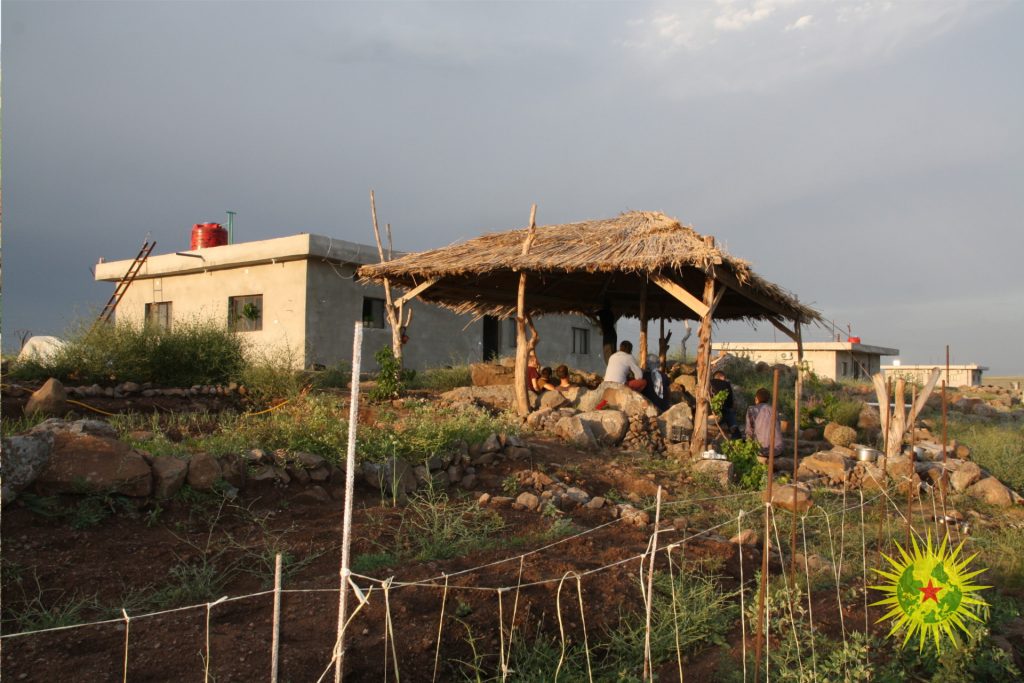This interview was first published June 2017 in Lower Class magazine.
At that time the academy was still under construction – see here for the changes the last 12 months have brought, including the completion of the academy, the launch of the Make Rojava Green Again campaign and our first education together.

Baz Soz is from Palestine and was organized for a long time in the French radical left. At the moment he is participating as an internationalist in the development of the Internationalist Commune.
At Rojava’s „Internationalist Commune“, an institution is being established for people coming from outside to the Federation of Northern Syria. What are the aims of this project and why did it become necessary? With YPG International there is already a point of recruitment for internationalists.
Of course, the Commune is not an alternative project to YPG International, but should rather be seen as a supplement. What we want to build is a whole village which will host the first civil academy for internationalists in Rojava. If we are honest regarding internationalism a lot of work still has to be done in Rojava. Very good comrades have come here and made their contribution: for example Ivana Hoffmann, Dilsoz Bahar and Rustem Cudi. Many of them are here and participate in all areas of the revolution, both civil and military.
But considering the importance of the revolution in Rojava we are still few in number. Especially if we compare the situation to Spain in 1936, we see that the scale of our work is far too small.
Because of this we would like to create an offer, which enables an ongoing political exchange. I think that many people back in their countries do not know about how many ways there are to contribute to this revolution. Most people think: When going to Rojava, I have to fight with the weapon in my hand. But that is only part of the work which has to be done here.
How do the other (civil) works appear?
So, the revolution reaches the whole of society and in that way there is also a variety of fields to which you can contribute. You can go to the youth structures and take part in organizing the youth, gaining experience in their councils and associations; you can do press work in the media of the movement; you can do research in the field of jineoloji in the autonomous women structures; you can help build up agriculture cooperatives or, if, you have sufficient language skills, you can help build up the Arabic self-governance in the newly liberated areas. The revolution has open many possibilities, and you can also propose and execute your own initiatives.
What role will your academy play in these works?
On the one hand it will be a kind of point of coordination for internationalists. At the moment internationalists are already working in different areas. With the academy this will get a more systematic and organized.

On the other hand it is important for people arriving here to have a place to arrive and a place to get a feeling for the environment, for a country which is new to them, to have an entry point to learn about language, ideology and the culture of the movement. We want to offer systematic language courses for internationalists as well as ideological education. In the meantime there are many necessary practical works: The further construction of the camp, growing fruit and vegetables, and after that we want to reforest a small forest.
How does the “ideological education” you talk about look like? Which content is being taught?
There are examples which are always part of the education: The history of Kurdistan and its revolutionary parties, for example, the development of the women’s movement in the region, the philosophy and epistemology of Abdullah Öcalan. Other topics are covered which are related to the concrete works here: how does a commune work? What is a council? What kind of form of economy we are thinking about in Rojava?
An important part is the language. Without that you cannot work in neighbourhoods or families. But it should not mean that every person coming here must already know Kurmanci. We also offer beginner courses.
“It is important for people arriving here to have a place to arrive and a place to get a feeling for the environment, for a country which is new to them, to have an entry point to learn about language, ideology and the culture of the movement.”
In general we have a big advantage in comparison to the life at home: The moment people arrive here they become full-time-revolutionaries. They do not have to go to work at 8 every morning or to university. They have time. In that way also our one-hour evening seminars are no spare time project, as you are also learning and discussing for 8 hours a day. For people in Europe it might sound a lot, but in the end most of the people say it is not enough, they want to go deeper.
What was your own motivation to come here? As a Palestinian you seem to be rather in the minority here.
I was organised in France for several years. In that way I made many similar experiences to other European friends. We have to overcome our separation and find a way to reach the people, we have to start organizational processes with more seriousness, and I think Rojava is a great opportunity for that.
As a Palestinian, there are other motives for me as well. First, Abdullah Öcalan went by himself to Lebanon at the end of the 70s and beginning of the 80s – and later to Syria – to build up academies. In that time, the PKK was fighting together with the Palestinian left.
But even more importantly, Democratic Confederalism – with its refusal of state structures and the possibilities of self-organization at its base – could be also be helpful for the Palestinian and Israeli left.
Democratic Confederalism – with its refusal of state structures and the possibilities of self-organization at its base – could be also be helpful for the Palestinian and Israeli left.
In a time where everyone is talking about the contradictions of a one-state or two-state-solution it would be something new to propose a non-state-solution. Democratic Confederalism and Democratic Autonomy already have proved themselves in Rojava, especially with regards to the co-existence of different people who previously fought one another. Because of my language skills I mostly work in Arabic structures here. The developments are fascinating, though we must say that they still need time.
But if you take into consideration that there is an immense level of hatred and many prejudices between Kurds and Arabs, there is hope, as you see how whole families start to adapt to the new system. I think that the anti-imperialist, anti-colonial movement in Palestine and Israel can learn from this experience.